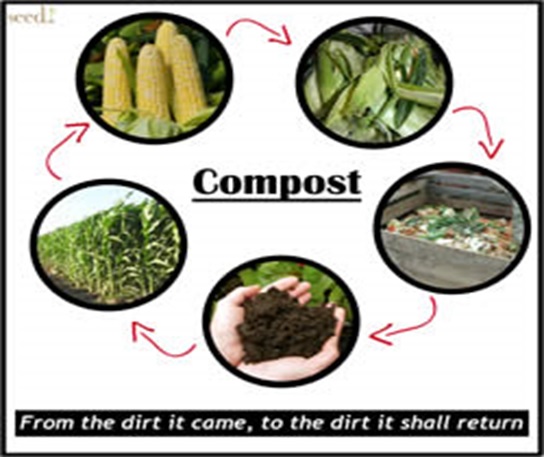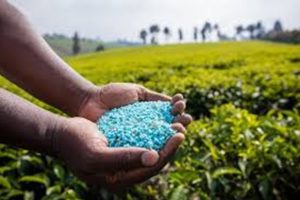
To date, apart from the conflicts throughout the world, the concern of getting fertilizers has become one of the most challenging issues for many countries. As the rainy season is about to come, countries like Ethiopia need fertilizer gravely.
In the past three or four years, the price of fertilizers is raised by many folds. Such price hike is challenging import dependent countries’ purchasing competence. The present situation shows that only those economically powerful countries can afford the price of fertilizers and provide as per the need of their farmers. Most African countries might be unable to compete in this market as a result of foreign currency deficit.
Though there are a number of challenges that the government of Ethiopia is experiencing, it did not hesitate at least to answer the queries of farmers. The Ministry of Agriculture said more than seven million quintals of fertilizer has been distributed to farmers for the 2022 cropping season. Adding it said 112,000 quintals of improved seeds have been provided and 105,000 quintals have been distributed to farmers.
The basic question that the government of Ethiopia should answer is that how long can the country resist the pressure the price hike of fertilizers in the world market? Ethiopia, unless there is an alternative, will no longer be the part of the world market to import fertilizer.
For so many other reasons, the government of Ethiopia should work on ways to replace the import substitutions. Apart from importing inorganic or chemical fertilizer, the government should motivate its citizens to focus on resources at hand.
Every society has its own ways to achieve things. In Ethiopia’s long history, farming has been the source of food. Again, Ethiopians have had their own ways to develop organic fertilizers. Rather than depending on imported materials, the government should give a glance for other options.
Having stayed with The Ethiopian Herald, Teferi Tadesse, a PhD Candidate in soil science and lecturer at Haramaya University, has disclosed that he is experienced in researching and working on organic fertilizer many years. Teferi adding said that at this moment the health and fertility of soil is at risk for the reason that chemical fertilizer does not help to keep the soil’s health and fertility except for a short term. Thus, using chemical fertilizer puts the soil at risk. The only way to preserve the soil healthy and fertile is using organic fertilizer and natural ways. This is the idea
to be underlined. While chemical fertilizers are utilized as a short term solution, organic fertilizers are preferable as lasting solution.
“I believe,” Teferi noted, “Our farmers used to apply traditional ways to protect the soil’s health and fertility. But at this moment, they are misguided by the promotion of chemical fertilizers, thinking it might help them preserve the health and fertility of their soil just like before and give them long lasting advantages. The sole choice ahead of us is we have to work aggressively on organic fertilizers development.”
According to the researcher, there are a number of ways for using the organic fertilizers. For instance, compost is one of the many ways to use on the soil. Byproducts of Bio- gas and agro- forestry are among the alternatives. However, the reality indicates that there is a big gap in using such resource effectively; so that it can be said that the employing level of these organic alternatives is almost none except some traditional practices from the farmers’ indigenous knowledge.
In relation to using other alternatives to replace chemical fertilizer, the sky rocketed price of it in the world market can be used as a good opportunity but if used properly. The lecturer mentioned that it is not a big problem because the country is endowed with the biggest resource that can be used as input for organic fertilizer processing. Among these is animals’ waste that Ethiopian farmers have used as a fuel for ages.
Intermingled usage of both chemical and organic fertilizers is preferable to harvest better production. Mixed use of the two fertilizers is also beneficial in other way that it drops off the amount of chemical fertilizer the farmers use in their farm. The mixed use will also protect the health and fertility of the soil at the same time. Above all, it is the best cure to fight back the price hike of fertilizer, the lecturer highlighted.
Based on experience, Teferi mentioned that the government of Ethiopia has allocated billions of Birr for chemical fertilizers importation so far, but it has given less attention for developing organic resources. In the process of organic fertilizer development, Haramaya University takes the lion share. It has achieved numerous results from its projects. Outcome of the project has reached many farmers across the country. Farmers are also got involved in the study so that they will teach others. Furthermore, farmers like the ways the University is doing things. They have also created other centers in different Universities in order to make nearby farmers beneficiary. The University has developed compost called Vermi- compost which the farmers like it a lot. Knowledge transfer among farmers bears tangible outcomes. Currently, the University is working on how to expand the accessibility of the project, the lecturer also pinpointed.
Moreover, Teferi added that products from the organic fertilizer are healthier than those from chemical ones. It is the fact that products from organic resources are more expensive than chemical or processed ones. When the soil is healthy, the plants are also healthy. When a land is assisted by organic supplements, plants are healthy; humans also secure their health. Even, the environment, the water resources, and also the air will be healthy. Everything is interconnected at this point. “This shows that the skill and the knowledge we need is at our hand.”
Therefore, Teferi said the government coupled with the responsible stakeholders should work hand in glove to empower the whole project to address farmers. The outcome could be observed in short period of time. No need to forget that every step should be taken scientifically. It is better to work with role model farmers to aware the rest of the community. Especially, it is essential to educate and aware agriculture professionals effectively. Using daily wastes of animals as precious resources and changing them in to organic fertilizers ought to take the upper hand in this regard. This will also create job for many.
Though Ethiopia is one of the resourceful countries in livestock, owners of the animals have not gained meaningful benefits from the livestock’s wastes. Now is the time to introduce bio gas to the farmers so that they get the necessary supplement from their livestock. They can get the energy they need in their day to day chores. Again, the remnant from the bio gas is the best organic fertilizer for their farms. If there is the will, there is a way. It is the best thing to practice throughout the country. All what needed is commitment.
As to Teferi, at this time, the government and responsible offices like the Ministry of Agriculture have been practicing in different activities to protect soil fertility. Even, a manual for ten years plan on soil fertility has been prepared, and it has been implemented by the regional governments. Teferi said he believes that these actions should be taken in a more advanced implementation ways. Especially, a manual titled ‘Soil Health and Fertility Strategy’ incorporates many valuable ideas and many experts were participated. “We need to implement things in a more synchronizing way,” he suggested.
To wrap up the ideas, the government of Ethiopia has introduced various ways to give response to the goal of food security in the country. Going back to nature becomes the best cure for many obstacles these days. Working on organic fertilizer will bring better solution for the problem the world faces
BY DANIEL ALEMAYEHU
The Ethiopian Herald 1 May 2022





